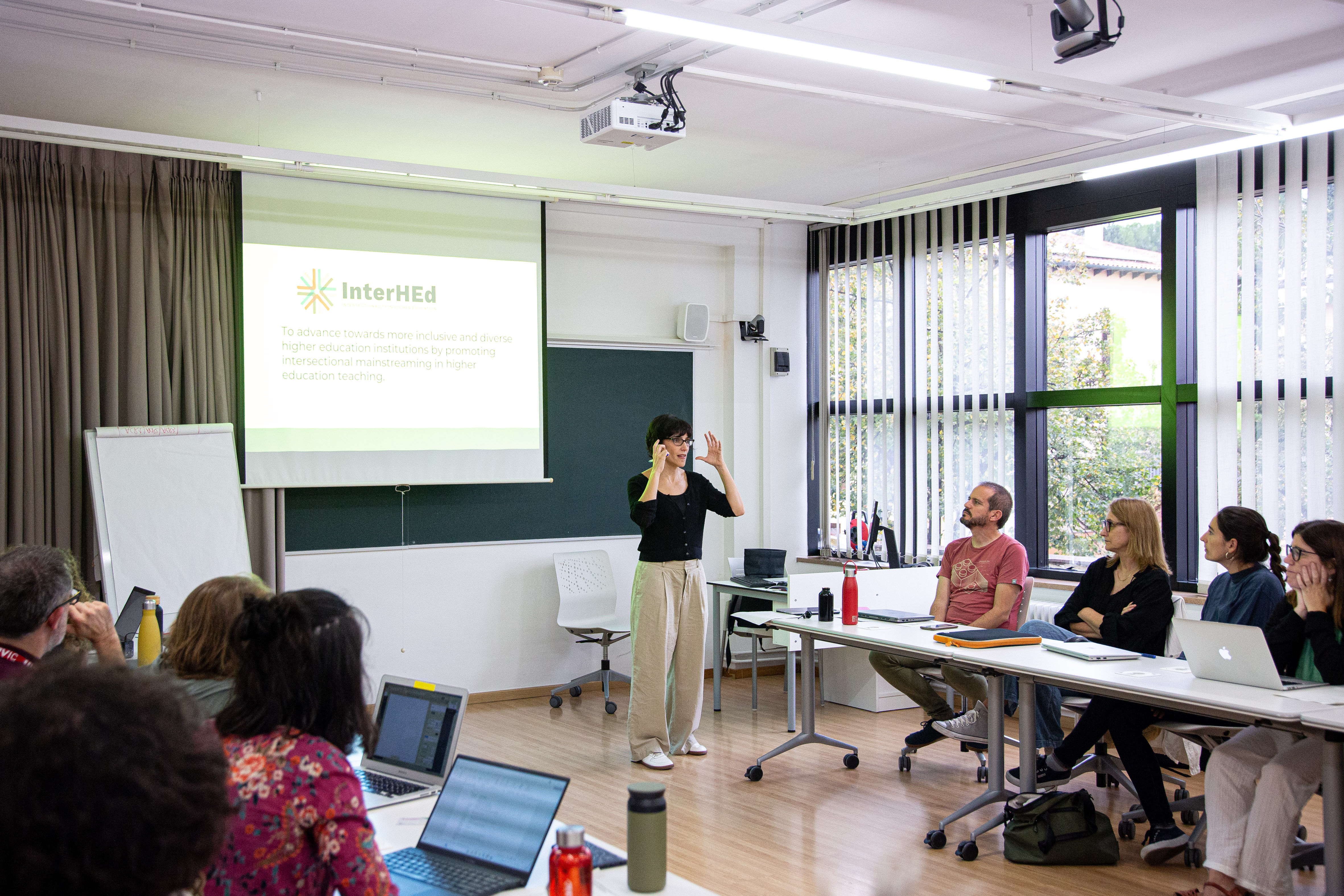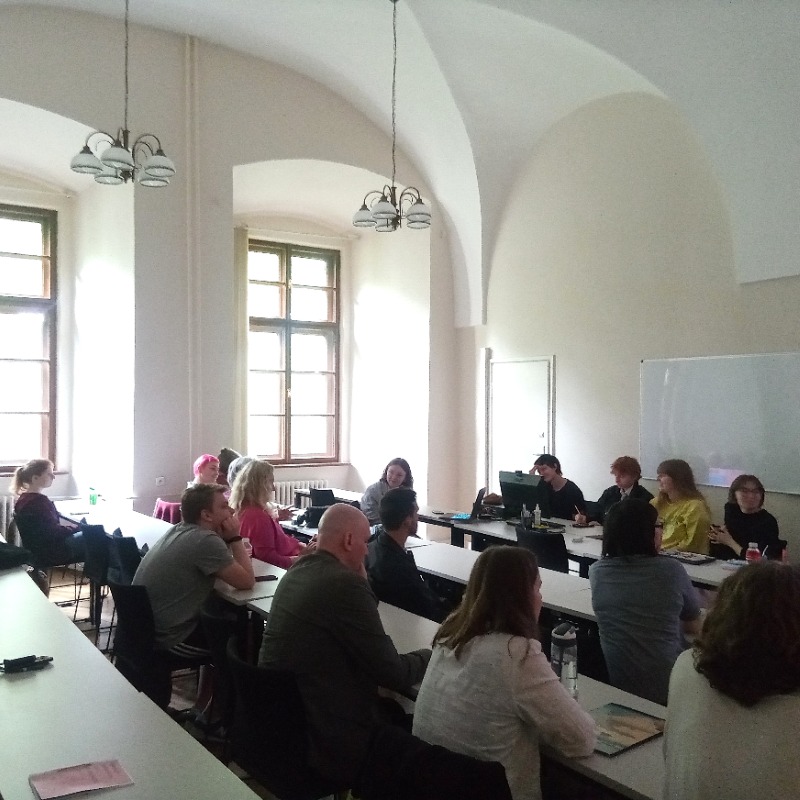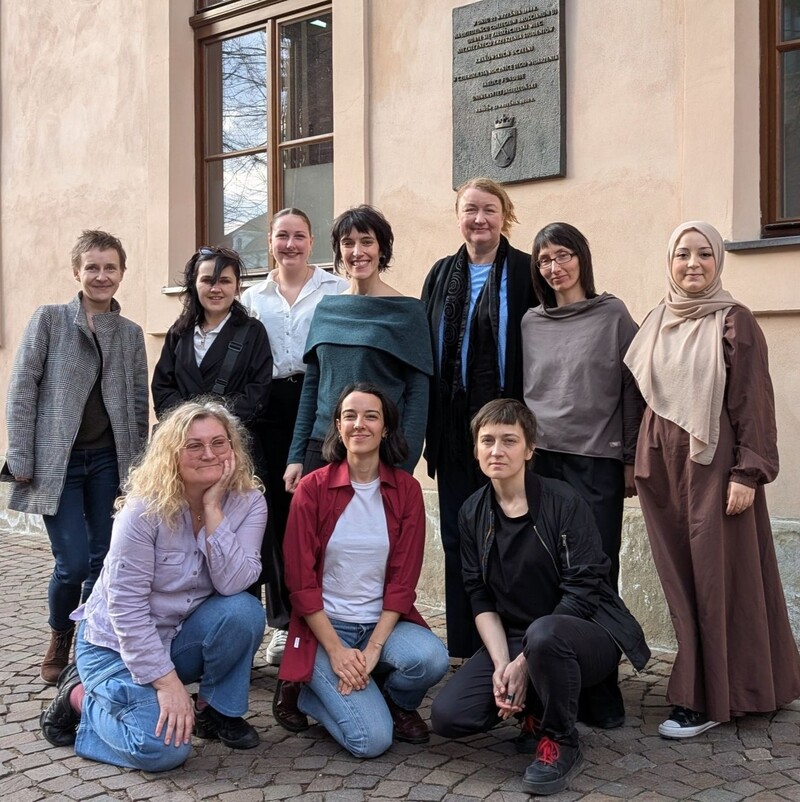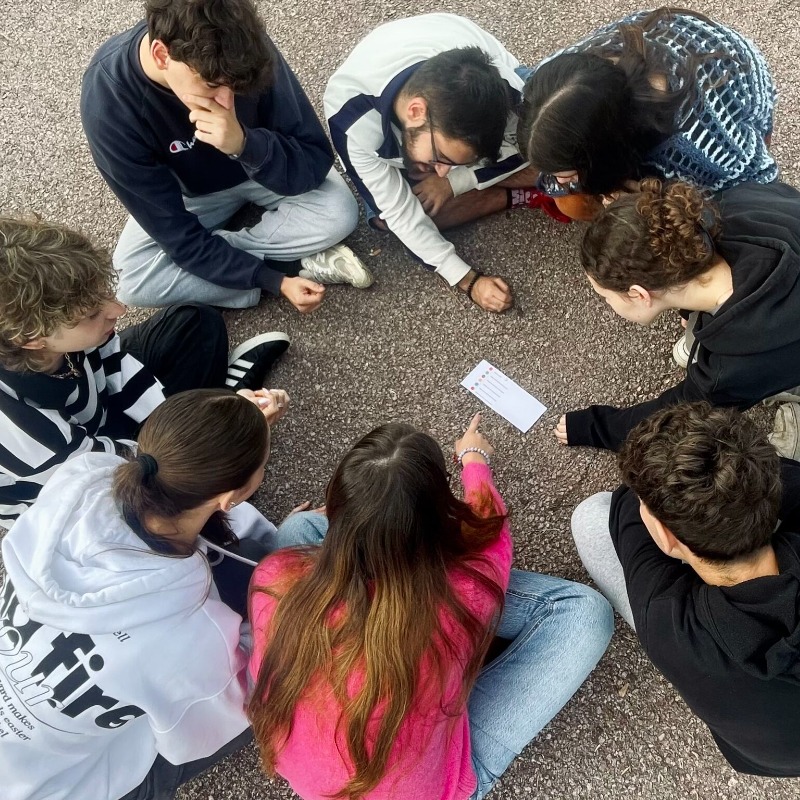Mainstreaming Intersectionality among peer Higher Education Professors

October, 2024. — Mainstreaming intersectionality among peer Higher Education professors
We are proud to announce that throughout October we have started the workshops about intersectionality in higher education among the teaching staff of the different partner universities that constitute the project. These are our experiences so far:
On the one hand, our team at Universitat de Vic – Universitat Central de Catalunya, also belonging to the GETLIHC Research Group, focussed on Translation, Literature, History and Communication, led the first teacher’s workshop about intersectionality in higher education with teaching staff. Furthermore, our team at TU Dortmund University, part of the Professorship of Higher Education (HdHf) at TU Dortmund University also held their first session. These first sessions included teaching staff from different faculties and disciplines, from Health Sciences to Engineering, Literature and Pedagogy, among others.
These first sessions aimed to openly discuss challenges, perspectives and necessities when privilege and discrimination experiences are at play within the classroom while reflecting on the power and privilege of one’s own teaching. The main objective of the workshop was not only to map necessities and set the ground for further theoretical knowledge on intersectionality and intersectional strategies but also to gather ideas for integrating practical intersectional approaches into learning environments by proposing some exercises, such as:
- Doing group activities like the « flower power » or wheel of power within the classroom to understand the many layers and dynamics of privilege and discussing them among teaching staff across disciplines
- Organizing group reflection in a brave space according to the different areas we are covering throughout the project
The session sought to establish the theoretical grounds of intersectionality when applying this approach and methodology within university classrooms.
These are some of the discussions we addressed throughout the session:
- There is an urgent need for practical strategies to design pedagogical methodologies such as the case study from an intersectional perspective
- Teaching staff need safe and brave spaces where they can share their own teaching experiences and learn ld from each other
- Space influences how methodology is applied to teaching, and thus it can become a limit to the real needs of students.
- As institutional platforms, universities also reproduce social inclusion-exclusionary dynamics. So, whether we want to accept it or not we should be working daily to transform and better them from within
- It is difficult to recognize that our referents are contextually biased or that we might lack information about non-hegemonic referents. However difficult this is to identify, this is also the most productive starting point to reframe our teaching from an intersectional perspective






